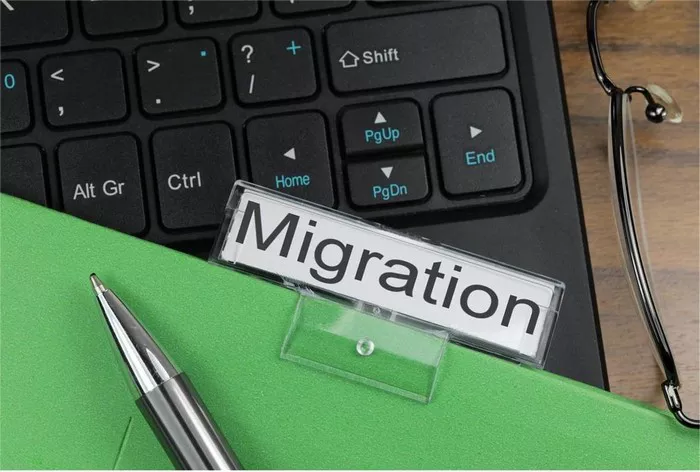Migration, a phenomenon as old as human civilization itself, has always had profound political ramifications. As people move across borders, they not only bring their cultures, traditions, and skills but also impact the political landscape of both their countries of origin and destination. In today’s interconnected world, understanding the political effects of migration is essential for policymakers, scholars, and citizens alike. This article delves into some of the key political effects of migration, shedding light on the complex dynamics and implications involved.
1. Shifting Demographics and Electoral Politics
One of the most immediate political effects of migration is the alteration of demographics in both origin and destination countries. In destination countries, migrants contribute to population growth, which can have significant implications for electoral politics. As migrants settle in new communities, they often become constituents, potentially influencing electoral outcomes. Politicians may tailor their policies and campaign messages to appeal to migrant communities, recognizing their growing electoral significance. Additionally, migrants themselves may become politically active, forming advocacy groups and voting blocs to advance their interests.
In origin countries, outmigration can lead to demographic imbalances, particularly in rural areas where the exodus of young people can result in aging populations. This demographic shift can impact political representation and policy priorities, as governments grapple with the challenges of providing services and infrastructure to shrinking communities. Furthermore, diaspora populations often maintain strong ties to their countries of origin and may seek to influence politics through remittances, lobbying efforts, or even direct involvement in political processes.
2. Immigration Policy and Political Discourse
Migration frequently emerges as a contentious issue in political discourse, shaping public opinion and influencing policy decisions. Debates surrounding immigration policy often intersect with broader discussions on national identity, security, and economic well-being. Political actors may adopt varying stances on immigration, ranging from calls for stricter border controls and reduced immigration levels to advocacy for more inclusive and humanitarian approaches.
The politicization of immigration can have far-reaching consequences, affecting diplomatic relations between countries, trade agreements, and international cooperation efforts. Moreover, the portrayal of migrants in media and political rhetoric can influence public perceptions, shaping attitudes towards immigration and diversity. Populist politicians, in particular, may exploit anti-immigrant sentiment for electoral gain, perpetuating stereotypes and fueling social tensions.
3. Cultural Integration and Social Cohesion
Migration inevitably raises questions about cultural integration and social cohesion within receiving societies. The influx of migrants with different cultural backgrounds can challenge existing norms and values, leading to debates over multiculturalism, assimilation, and identity politics. While diversity enriches societies, it can also give rise to tensions and conflicts, particularly in contexts where cultural differences are perceived as threatening.
Political leaders play a crucial role in shaping narratives around cultural integration, promoting inclusive policies that foster social cohesion while addressing legitimate concerns about cultural preservation and national identity. Education, language programs, and community initiatives can facilitate intercultural dialogue and mutual understanding, helping to mitigate tensions and promote solidarity among diverse populations.
4. Economic Policy and Labor Dynamics
The economic consequences of migration are intricately linked to political decision-making and policy formulation. Migrants often fill essential roles in labor markets, contributing to economic growth and addressing labor shortages in key sectors such as healthcare, agriculture, and technology. However, concerns about job competition, wage suppression, and strain on social services can fuel political debates about immigration policy and labor regulation.
Governments must navigate the complex trade-offs between economic imperatives and political considerations when crafting immigration policies. Balancing the need for labor mobility with concerns about domestic employment and social welfare requires nuanced policy approaches that take into account the interests of various stakeholders, including employers, workers, and the broader public. Moreover, international migration flows are influenced by global economic trends, geopolitical developments, and environmental factors, highlighting the interconnectedness of economic and political dynamics.
5. Human Rights and International Relations
Migration is inherently intertwined with issues of human rights and international relations, posing significant challenges for policymakers at the national and global levels. The treatment of migrants, refugees, and asylum seekers reflects a country’s commitment to upholding human rights standards and fulfilling its international obligations. Political decisions regarding border enforcement, detention policies, and asylum procedures can have profound humanitarian implications, affecting the lives and well-being of vulnerable populations.
At the international level, migration governance is increasingly recognized as a pressing global issue that requires coordinated action and multilateral cooperation. Diplomatic efforts, bilateral agreements, and international conventions seek to address the root causes of migration, protect the rights of migrants, and promote safe and orderly migration pathways. However, political disagreements, geopolitical tensions, and nationalist agendas can hinder progress towards more effective and equitable migration policies.
Conclusion
In conclusion, the political effects of migration are multifaceted and far-reaching, influencing governance, policy-making, and public discourse on a global scale. As migration continues to shape societies and redefine geopolitical landscapes, it is imperative to adopt holistic approaches that prioritize human rights, social inclusion, and sustainable development. By understanding the complex interplay between migration and politics, policymakers can better address the challenges and opportunities presented by this inherently dynamic phenomenon.


